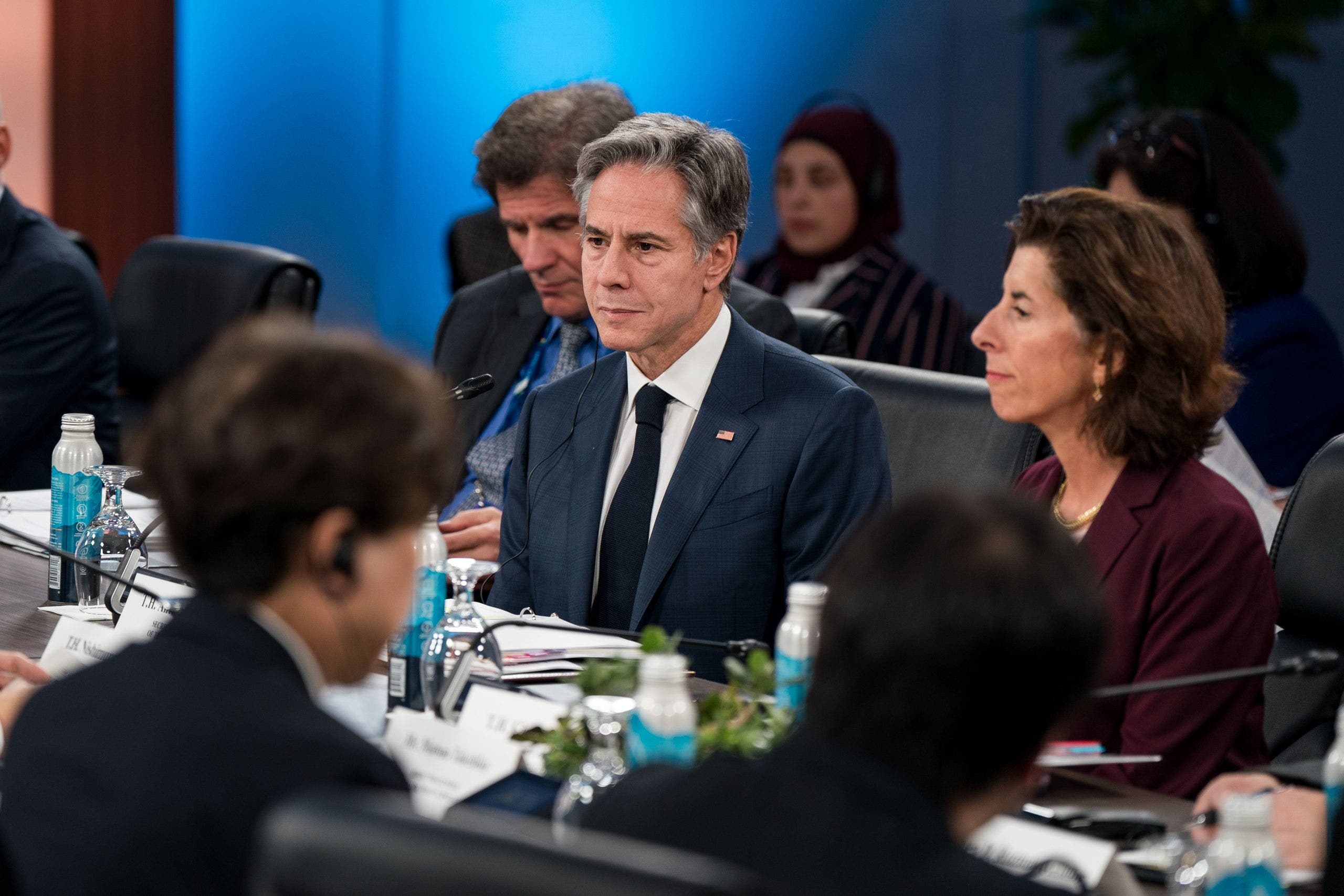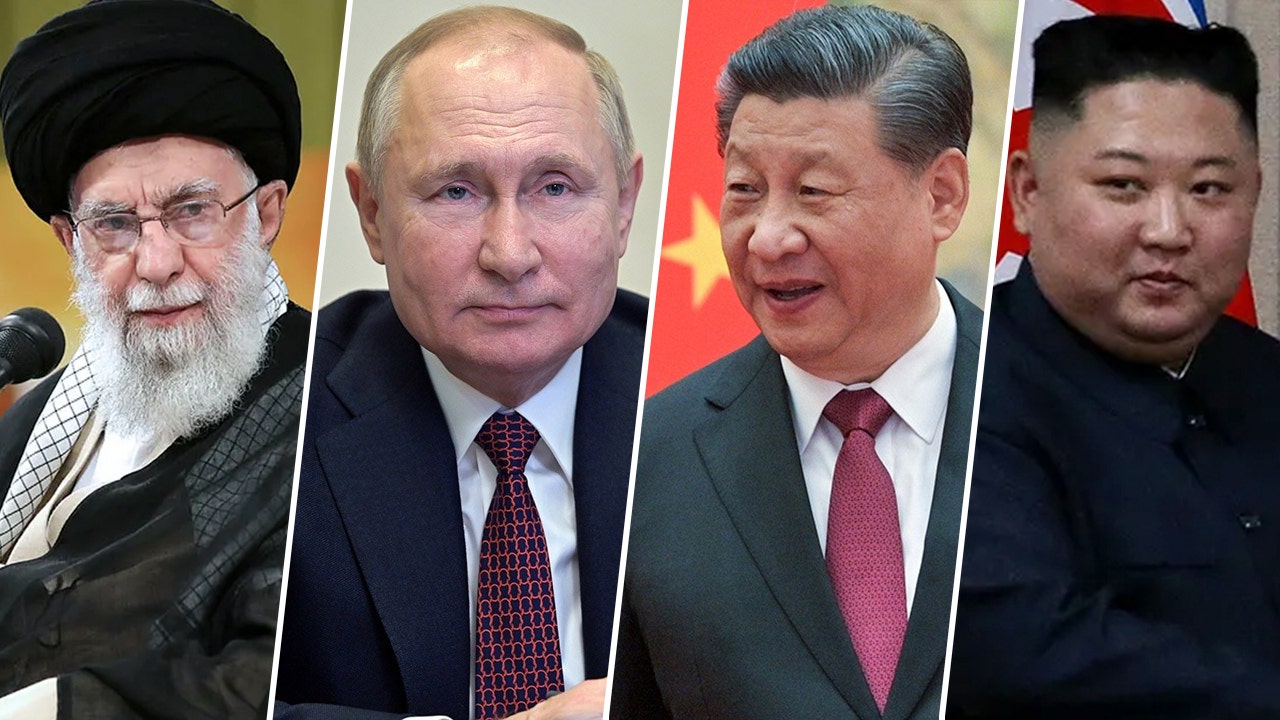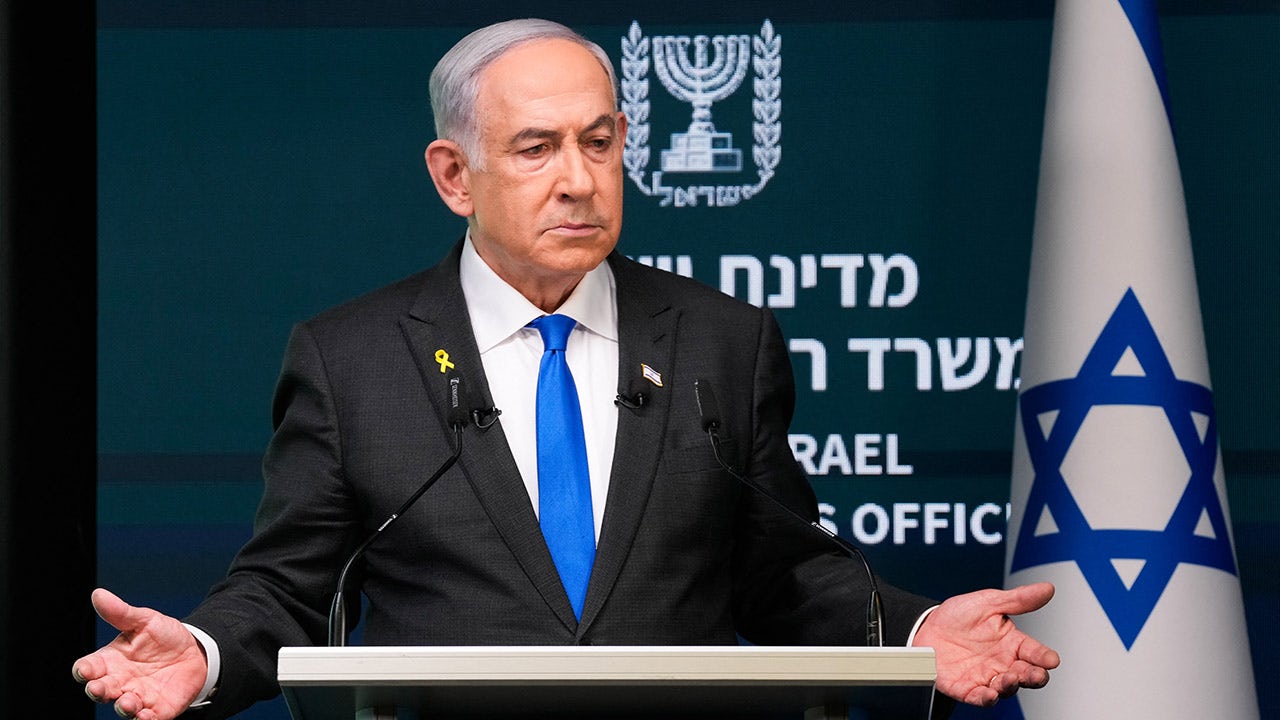EXCLUSIVE – Rep. Joe Wilson, R-S.C., will introduce legislation Thursday calling for sanctioning officials from the Eastern European country of Georgia over its Russia-styled agents law.
The Mobilizing and Enhancing Georgia’s Options for Building Accountability, Resilience, and Independence (MEGOBARI) Act comes after the Georgia Parliament passed a controversial Russian-style foreign agents law amid widespread protests and furious opposition from Western allies.
In a written statement to Fox News Digital, Wilson, who chairs the Congressional Commission on Security and Cooperation in Europe, known as the Helsinki Commission, said the Georgian Dream, the ruling political party, and the Kremlin aren’t taking the United States seriously.
PUTIN WATCHES ON AS EASTERN EUROPEAN NATION PASSES LAW FAVORING MOSCOW AMID VIOLENT PROTESTS
Rep. Joe Wilson speaks to a crowd at Sen. Lindsey Graham’s election night watch party on Nov. 3, 2020, in Columbia, South Carolina. (Sean Rayford/Stringer via Getty Images)
“They think we are bluffing when we say there will be consequences for attacking the Georgian people’s bond with the United States. The Megobari Act shows that the United States will respond to their breaking faith with the Georgian people’s dedication to freedom and a pro-West future. It also shows that Congress wants a strong and bright future for the relationship between our two countries, and that we aren’t going to just say it, but do something about it.”
Fox News Digital has obtained a copy of the “MEGOBARI Act,” which outlines urgent consideration of visa bans for key individuals and their families who are “materially or directly responsible in Parliament for the advocacy, passage, and potential enactment of the recent Russian-style foreign agent legislation.”
The bill also seeks to impose sanctions on people within the country’s political or governmental leadership, business circles, law enforcement and security services responsible “for advancing the same Russian-style foreign agent legislation or undermining or suppressing lawful popular or civil society opposition.”
Police block demonstrators outside the parliament building in Tbilisi, Georgia, on April 16, 2024. People were protesting a new law similar to one used by Russia to stigmatize independent news media and organizations seen as being at odds with the Kremlin. (AP Photo/Zurab Tsertsvadze)
According to the bill, within 60 days after its enactment, the secretary of state shall identify key individuals who are in the government of Georgia, working as its agents or on its behalf, or otherwise in a position to strongly influence the actions of such government and “have material responsibility for undermining or injuring democracy, human rights, or security in Georgia.”
Law enforcement officers block a street during a protest against a draft bill on “foreign agents” in Tbilisi, Georgia, on April 15, 2024. (Reuters/Irakli Gedenidze)
On top of identifying individuals responsible for the agents’ law, the bill also asks the executive branch to prepare a report on Ukraine-related sanctions evasions in Georgia, as well as a report on Russian intelligence assets in the country.
“Not later than 90 days after the date of the enactment of this Act, the Director of National Intelligence, in coordination with the Secretary of State, the Secretary of Defense, and the Director of Central Intelligence, shall submit to Congress a report examining the penetration of Russian intelligence elements and their assets in Georgia, to include an annex examining Chinese influence and the potential intersection of Russian-Chinese cooperation in Georgia.” the bill text reads.
For more than a month, tens of thousands of Georgian citizens have been taking to the streets to oppose the controversial bill, which was widely criticized by Georgia’s Western allies, the White House included, and openly praised by the Kremlin.
It’s round two for the ruling Georgian Dream party, which reintroduced a slightly amended bill after last year’s failed attempt to pass it. In 2023, the government dropped the bill after the massive rallies.
Vladimir Putin and protests in Georgia. (Shutterstock | Reuters/Irakli Gedenidze)
Due to its resemblance to a law adopted by Moscow in 2012, the proposal is referred to in public as the “Russian law.” Critics say the Kremlin used its version to suffocate critical voices – eliminate opposition, imprison activists, crack down on independent media – leaving Georgia’s pro-democracy population nervous as to the outcome.
Last week, Georgian President Salome Zurabishvili vetoed the law, saying it is”in its essence and spirit is a Russian law that contradicts our Constitution and all European standards, and therefore it’s an obstacle to our European path.”Now the bill is back once again with the Georgian Parliament, which can either immediately overcome the veto or shelve the law indefinitely.
Associate Producer based out of Washington, D.C. Bureau




